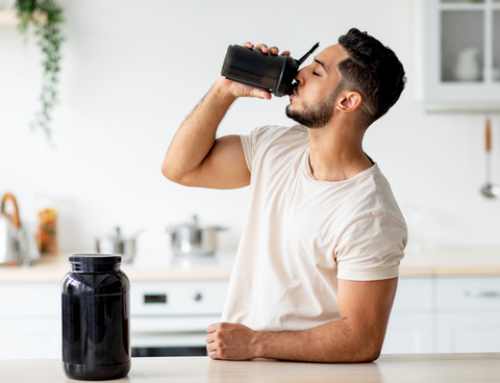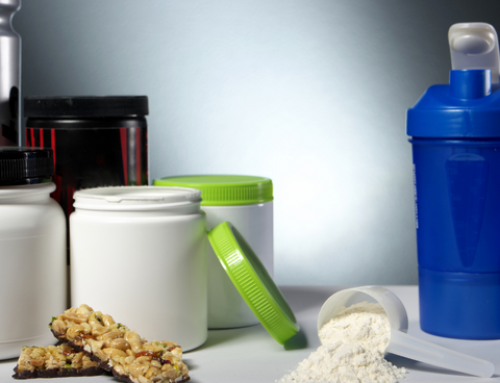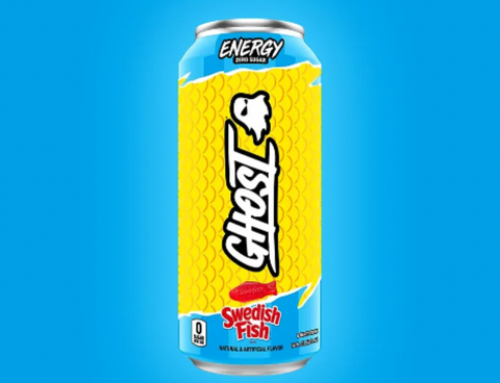How Athletes Should Supplement Their Diets
As a strength and conditioning professional, I’m not a big supplement advocate. I advise most of the athletes I train to get their nutrition through whole foods. But let’s be realistic. Life is busy. When your life includes school and sports and family (and all the obligations and commitments that accompany them), proper nutrition can be challenging. Supplements can be useful in filling gaps in your diet, improving overall nutrition and, ultimately, boosting your performance. (Learn more about supplements and your diet.) Below are some of the common supplements that I recommend for athletes.
Multivitamins
Start taking a multivitamin as a child, especially during your teens. Chances are—and research shows—that most of us are undernourished when it comes to daily vitamins and minerals. Regardless of their age, children who take an age-appropriate multivitamin experience more normal growth patterns and suffer from fewer diet-induced vitamin deficiencies. Studies also demonstrate that people of all ages who take a daily multivitamin are generally healthier than those who don’t.
The following common vitamins should be in your multivitamin. Daily recommended dosages vary for each person, so always check with a physician or nutritionist.
- Vitamin B is a complex of nutrients that helps the body convert protein and carbohydrates into energy. It can improve performance by preventing a drop in energy, and it also supports post-workout recovery.
- Vitamins C and E are antioxidants that effectively aid post-workout muscle repair and help reduce inflammation.
- Calcium increases bone strength, plays a critical role in muscle function and can even prevent cramping or fatigue.
Fish Oil
How much fish do you eat on a regular basis, especially cold water varieties like salmon? My guess is, not nearly enough. Two or three servings per week are recommended. Fish oil supplements can compensate by providing essential omega-3 fatty acids, which reduce inflammation, aid lung function and improve your muscle-to-fat ratio. Look for a supplement that contains 500mg of both DHA and EPA, and take it along with your daily multivitamin. (Read about the fats you need.)
Protein
Protein is the key to getting bigger and stronger because it promotes muscle rebuilding. An active individual should take in (daily) about 0.8 grams of protein for every pound of body weight. High performance athletes should up this to 1 gram per pound. It’s especially important to consume protein after a workout, practice or game to repair muscles and boost recovery.
If you lack access to lean protein food sources, protein supplements, such as powders or bars, are a convenient way to ensure that you meet your daily requirement. Whey protein is designed specifically to get to your muscles as quickly as possible to start the recovery process. Look for high-quality whey protein that includes a full complement of branched-chain amino acids (BCAAs). Avoid additives, including stimulants, prohormones, nitric oxide and proprietary blends that makes outlandish claims.
Creatine
Although creatine is often misunderstood, it has no magic or mystery. It provides the muscles with more adenosine triphosphate (ATP)—the compound the body uses for energy. So it allows you to work out harder and for a longer period of time. “Creatine monohydrate supplementation induces a significant increase in athletic performance”—per R. Rahimi in the Journal of Strength and Conditioning Research. (Find out more about the performance benefits of creatine.)
There is some controversy about whether creatine is necessary for teenage athletes. Some experts assert that it’s completely unnecessary, equating it to putting jet fuel in a compact car. Along with many other experts, I recommend starting to take creatine in your mid- to late-teen years to give your training and performance an extra boost. It’s safe to take between 2 and 5 mg of creatine each day.
RECOMMENDED FOR YOU
MOST POPULAR
How Athletes Should Supplement Their Diets
As a strength and conditioning professional, I’m not a big supplement advocate. I advise most of the athletes I train to get their nutrition through whole foods. But let’s be realistic. Life is busy. When your life includes school and sports and family (and all the obligations and commitments that accompany them), proper nutrition can be challenging. Supplements can be useful in filling gaps in your diet, improving overall nutrition and, ultimately, boosting your performance. (Learn more about supplements and your diet.) Below are some of the common supplements that I recommend for athletes.
Multivitamins
Start taking a multivitamin as a child, especially during your teens. Chances are—and research shows—that most of us are undernourished when it comes to daily vitamins and minerals. Regardless of their age, children who take an age-appropriate multivitamin experience more normal growth patterns and suffer from fewer diet-induced vitamin deficiencies. Studies also demonstrate that people of all ages who take a daily multivitamin are generally healthier than those who don’t.
The following common vitamins should be in your multivitamin. Daily recommended dosages vary for each person, so always check with a physician or nutritionist.
- Vitamin B is a complex of nutrients that helps the body convert protein and carbohydrates into energy. It can improve performance by preventing a drop in energy, and it also supports post-workout recovery.
- Vitamins C and E are antioxidants that effectively aid post-workout muscle repair and help reduce inflammation.
- Calcium increases bone strength, plays a critical role in muscle function and can even prevent cramping or fatigue.
Fish Oil
How much fish do you eat on a regular basis, especially cold water varieties like salmon? My guess is, not nearly enough. Two or three servings per week are recommended. Fish oil supplements can compensate by providing essential omega-3 fatty acids, which reduce inflammation, aid lung function and improve your muscle-to-fat ratio. Look for a supplement that contains 500mg of both DHA and EPA, and take it along with your daily multivitamin. (Read about the fats you need.)
Protein
Protein is the key to getting bigger and stronger because it promotes muscle rebuilding. An active individual should take in (daily) about 0.8 grams of protein for every pound of body weight. High performance athletes should up this to 1 gram per pound. It’s especially important to consume protein after a workout, practice or game to repair muscles and boost recovery.
If you lack access to lean protein food sources, protein supplements, such as powders or bars, are a convenient way to ensure that you meet your daily requirement. Whey protein is designed specifically to get to your muscles as quickly as possible to start the recovery process. Look for high-quality whey protein that includes a full complement of branched-chain amino acids (BCAAs). Avoid additives, including stimulants, prohormones, nitric oxide and proprietary blends that makes outlandish claims.
Creatine
Although creatine is often misunderstood, it has no magic or mystery. It provides the muscles with more adenosine triphosphate (ATP)—the compound the body uses for energy. So it allows you to work out harder and for a longer period of time. “Creatine monohydrate supplementation induces a significant increase in athletic performance”—per R. Rahimi in the Journal of Strength and Conditioning Research. (Find out more about the performance benefits of creatine.)
There is some controversy about whether creatine is necessary for teenage athletes. Some experts assert that it’s completely unnecessary, equating it to putting jet fuel in a compact car. Along with many other experts, I recommend starting to take creatine in your mid- to late-teen years to give your training and performance an extra boost. It’s safe to take between 2 and 5 mg of creatine each day.












